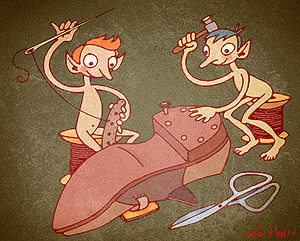Each day that we work together my students will come out with certain phrases or questions that will just cause me to stop and laugh out loud. I don't laugh at them as much as I laugh at the learning process. We all have processing delays, languishes, misunderstandings and yet we don't seem to express them quite as openly as my wonderful exceptional students in Kindergarten and First Grade. They are without filters and therefore we must take caution in how and what we say -- no matter whether it's in the classroom, the playground, the cafeteria, talking with other adults but within earshot of the students and especially cautious at home and from the media. They will learn and process back to us from all of the input they receive.
Here are some of the gems of this week...
 1.
1. We are going to celebrate when we reach five days of 100% positive behaviors. We use www.classdojo.com to record our positive and negative behaviors. Each of the students see their individual scores and our daily percentage when we close out the day just before dismissal. On the day we reached our 3rd 100% day I posted a sign of the fast food choices for lunch, we could select, once we reached our 5th day. Wanting to use social studies as the lesson, I said we would take a "vote" on where we would choose for lunch. Immediately one of the students raised his hand and emphatically stated, "I'm afraid of boats, please let's not take a boat. You just go through the drive-thru and bring it back, okay?"
2. We have been using fairy tales, nursery rhymes and fables as our reading materials to help the students be able to sequence events, identify characters, setting, select the hero and the villain. After we had read the "Shoemaker and the Elves" and then watched the book on video, I started asking questions about the story. All of the students were participating and raising their hands to answer the questions. We were all fully engaged on the story's setting, subject, actions, and characters. However, when I asked the question as to why the Shoemaker and his wife wished to make clothes for the Elves, a student who had not participated as much as the others quickly raised his hand. "Yes?" said I. "Oh, they wanted to make clothes for them since the Elves were butt naked!"
 3.
3. We were working on math stories in order to practice our addition and subtraction. I had made power point slides that were pretty sophisticated and the students were excited to see apples fall from the tree, to see the equation appear as they read the narrative of the math story. My last slide was one where three race cars were lining up at the starting line to run a race. Before we could read the first line of the story one of the students raised his hand and stated that his dad says that "race cars go so fast that it makes you pee on yourself."
 4.
4. When studying foods that we can eat without cooking, I chose to sing the song, "Herman The Worm" where Herman grows a little bit after eating each item the student says and then at the end he returns to his original size, because he "burps". Boys love it because the song involves sitting a fence post, chewing bubble gum, playing with my yoyo... but as we had moved around the table one morning, singing the song and stopping for each of them to state a food you can eat without cooking, one of my students on the autism spectrum was not very talkative. I repeated the phrase again, no response. I then gave him a verbal cue to see if he would repeat the cue, but again no response. One of my other students sitting next to the first one immediately stands, garners a look of terror on his face and points to the other student shouting, "Broken, Mr. Don, broken!" Not loosing a step, I reached over the the student on the autism spectrum, touched the button on his shirt, restated the verbal cue, to which he then responded clearly, "carrots". The other student sat back down and stated, "Thanks, Mr. Don." We just moved on with another round of the song until all had a chance to participate. I smiled and winked at the one who was concerned about his classmate. He gave me a thumbs up!
|D|

